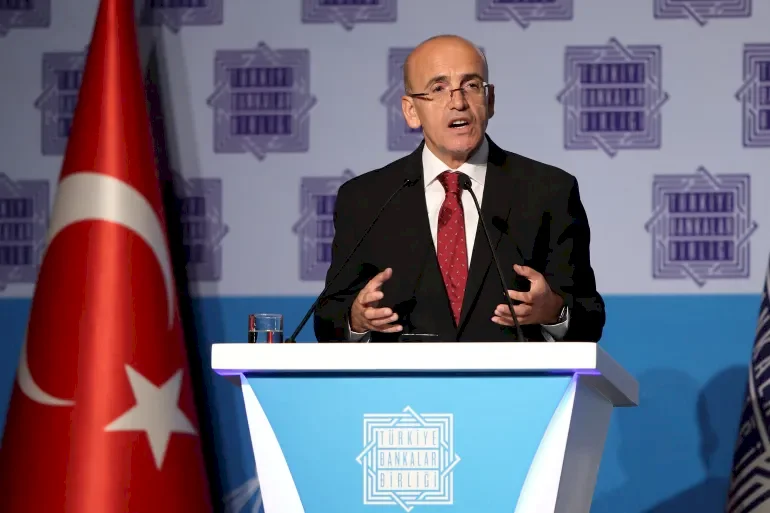
Ankara Closes the Chapter on 'Lira-Indexed Deposits' After 4 Years of Launching Them
SadaNews - The Turkish Central Bank ended, on Saturday, the "protected deposits against exchange rate fluctuations" program (locally known as "KKM"), in a move described as a new chapter in the shift away from the unconventional economic policies adopted by President Recep Tayyip Erdoğan during the crisis of the lira.
According to Bloomberg, the Central Bank announced that no new accounts will be opened or existing accounts renewed within the program starting from August 23, while previously opened accounts will continue until their maturity.
Temporary Rescuer in the Lira Crisis
The program was launched in December 2021 at President Erdogan's directive and was based on guaranteeing compensation to lira depositors if the losses of the currency exceeded the banks' interest rates.
The goal was to reduce the demand for the dollar and support the stability of the local currency, which had lost 44% of its value against the dollar in 2021 alone.
According to Bloomberg, the launch of the program led to a temporary rise in the lira's value, but it cost the Turkish public finances approximately $60 billion.
Although the plan helped Erdoğan navigate through the 2023 election cycle successfully, it also led to increasing inflationary pressures.
Finance Minister Mehmet Şimşek stated in 2024 that "the program made it difficult to combat inflation and harmed the transmission mechanism of monetary policy," emphasizing that ending the program had become a necessity.
Sharp Decline in Account Volumes
According to Reuters, data from the Turkish Banking Regulation and Supervision Agency showed that the value of accounts dropped from a peak of 3.4 trillion lira (equivalent to $140 billion at the time) in 2023 to 440.6 billion lira (about $11 billion) by mid-August 2025.
According to Reuters, the volume of covered deposits has gradually shrunk as interest rates rose and the appeal of traditional lira accounts increased.
In an official statement, the Central Bank said that "the necessary conditions for ending the program have become available," noting that the decline in inflation and improved attractiveness of deposits in the local currency provided the ground for exiting the system.
Official Statements and Future Implications
Finance Minister Mehmet Şimşek considered in a post on X platform that "ending the KKM system represents a new achievement within the financial reform program," emphasizing that this step will enhance financial stability and mitigate risks to the public budget.
Bloomberg indicates that this move reflects the new direction of the Turkish authorities towards stricter monetary policies that rely on raising interest rates instead of the exceptional tools that accompanied years of crisis.
However, observers warned that ending the program tests the market's ability to absorb capital flows amid ongoing investor confidence fragility in the lira.
Source: Bloomberg + Reuters

Barclays: Oil Prices Could Reach $80 per Barrel

Bitcoin Falls Near $63,000 Following Attack on Iran

The Trap of High Prices: Debts Haunt Germans and Bankruptcy Knocks at Their Doors

Major Changes in the Saudi Public Investment Fund… What is Happening?

Gold Stabilizes and Heads for its Seventh Consecutive Monthly Gain

The IMF Disburses Approximately $2.3 Billion to Egypt Following Two Reviews of the "Reform...

Oil Rises Amid Expectations for Nuclear Negotiations Between Washington and Tehran
